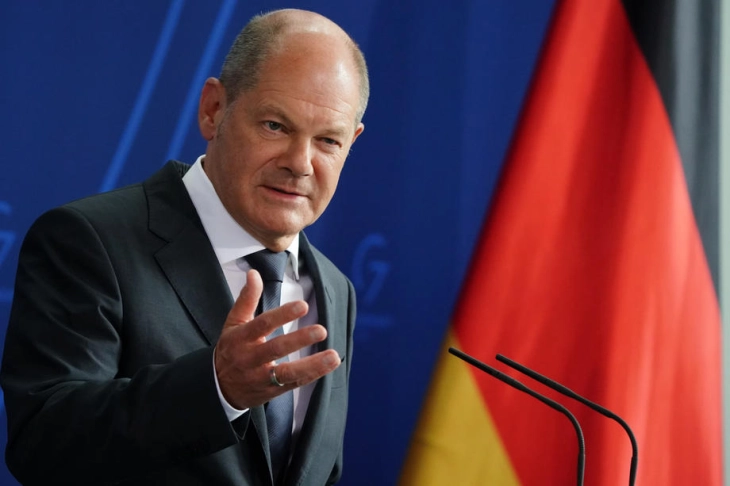Scholz talks tough on migration as German coalition meets
- Germany must take tougher action against migrants whose asylum claims have been rejected as part of overall efforts to limit irregular migration to the country, German Chancellor Olaf Scholz said in an interview on Friday.

Berlin, 21 October 2023 (dpa/MIA) - Germany must take tougher action against migrants whose asylum claims have been rejected as part of overall efforts to limit irregular migration to the country, German Chancellor Olaf Scholz said in an interview on Friday.
"We must finally deport on a grand scale those who have no right to stay in Germany," Scholz told Der Spiegel magazine as the three parties in his governing coalition wrangled with the subject in talks on Friday evening.
He added that those who cannot prove their case for asylum and have no prospects of staying must leave: "We must deport more and faster."
Scholz said "a whole bundle of measures" are needed to limit irregular migration, including better protection of the European Union's external borders and tighter controls on Germany's borders with neighbouring EU countries.
Germany must continue welcoming refugees who are entitled to asylum because of political persecution or other legitimate reasons, Scholz said, and also must attract more immigrants with in-demand skills.
"But those who belong neither to the one nor to the other group cannot stay with us," Scholz said.
The interview was published as the leaders of Germany's three-party coalition met in Berlin to review migration policy amid growing tensions in the country over the issue.
Scholz hosted the party and parliamentary group leaders of his own Social Democratic Party (SPD), the Green Party and the pro-business Free Democrats (FDP).
According to coalition sources, they also discussed the situation in Israel and the Palestinian Territories. No announcements were made after the meeting in the evening at the Chancellor's Office.
Coalition spokespeople said they discussed the Hamas attack on Israel and its consequences, as well as the cooperation within the coalition The talks were "serious and constructive," they said.
"Within the government coalition we have had an absurd permanent dispute about political decisions," Scholz told Der Spiegel.
"The citizens often did not understand that any more than I did. And that must come to an end now." At the moment, he said, it looks as if "everyone in the governing parties has really understood that now."
All three took a trouncing in elections this month in the states of Bavaria and Hesse, where parties preaching a tougher line on immigration made significant gains.
This included the far-right Alternative for Germany (AfD), which secured third place in Bavaria with nearly 15% of the votes. In Hesse, the AfD boosted its share of votes by five percentage points to 18% and became the second-largest party in a western German state for the first time.
Meanwhile, the government recently presented a reform package aimed at limiting illegal immigration and facilitating deportations.
Scholz has called on the conservative opposition and the 16 states to cooperate with his government on migration policy.
This is "an issue where the state must show that it also has things under control," he told an economic conference in Berlin earlier in October.
The states have jointly submitted a comprehensive paper on migration, which is hoped to help reach a broadly acceptable solution at a conference of premiers of the federal states on November 6.
The need for action on migration and asylum policy has been pointed out for months by states and municipalities, which are struggling to accommodate the growing number of people seeking to stay in Germany.
Some of Scholz's party were not thrilled with his new statement on deportations. Lawmakers Rasha Nasr and Hakan Demir published a statement on Friday in which they stressed that deportations were "only a small part of the solution" in times of high inflation and companies calling for help.
"Migration is one of many issues we have to deal with - some act as if this is the only issue left, when we have so much to do," they criticized.
Photo: EPA







